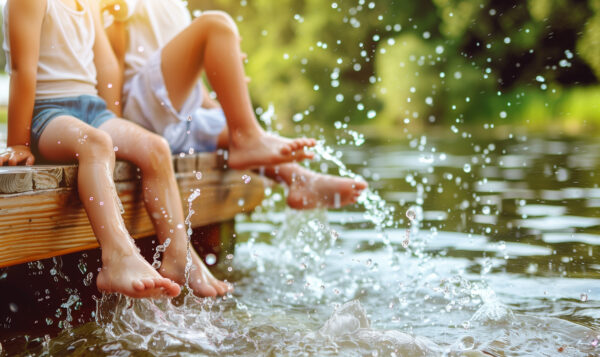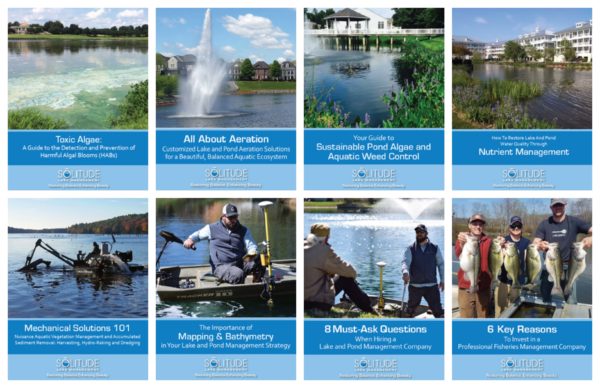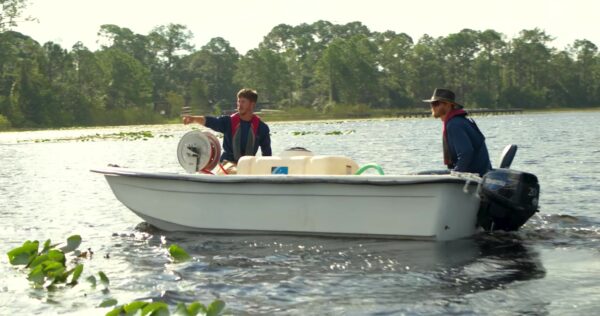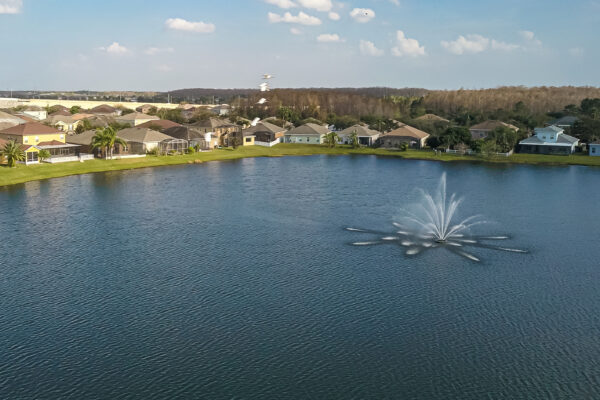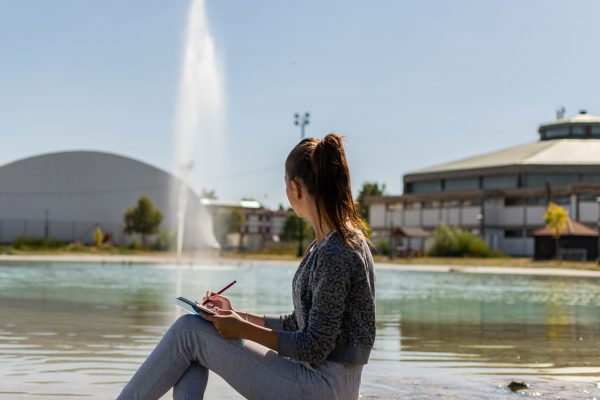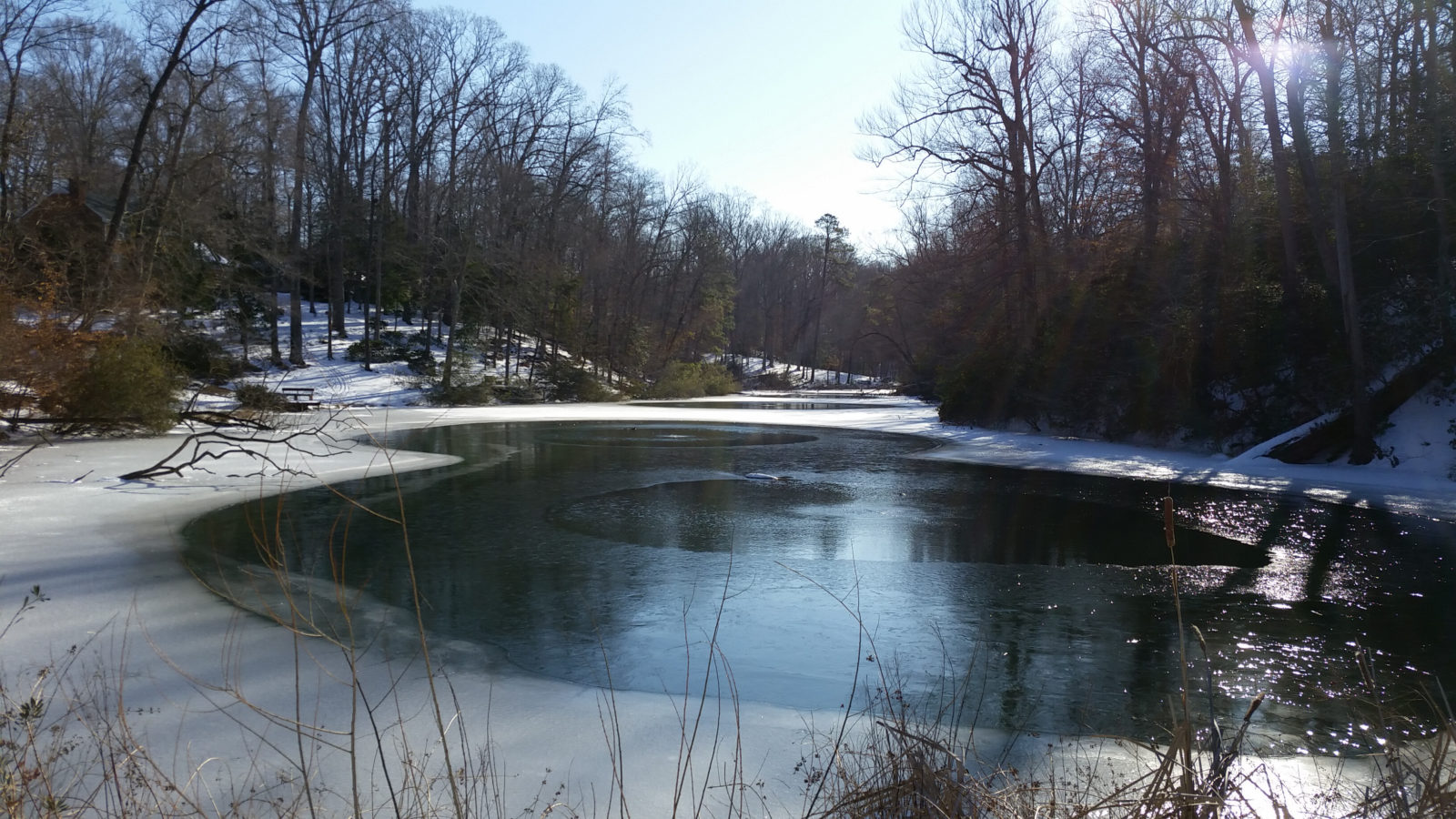
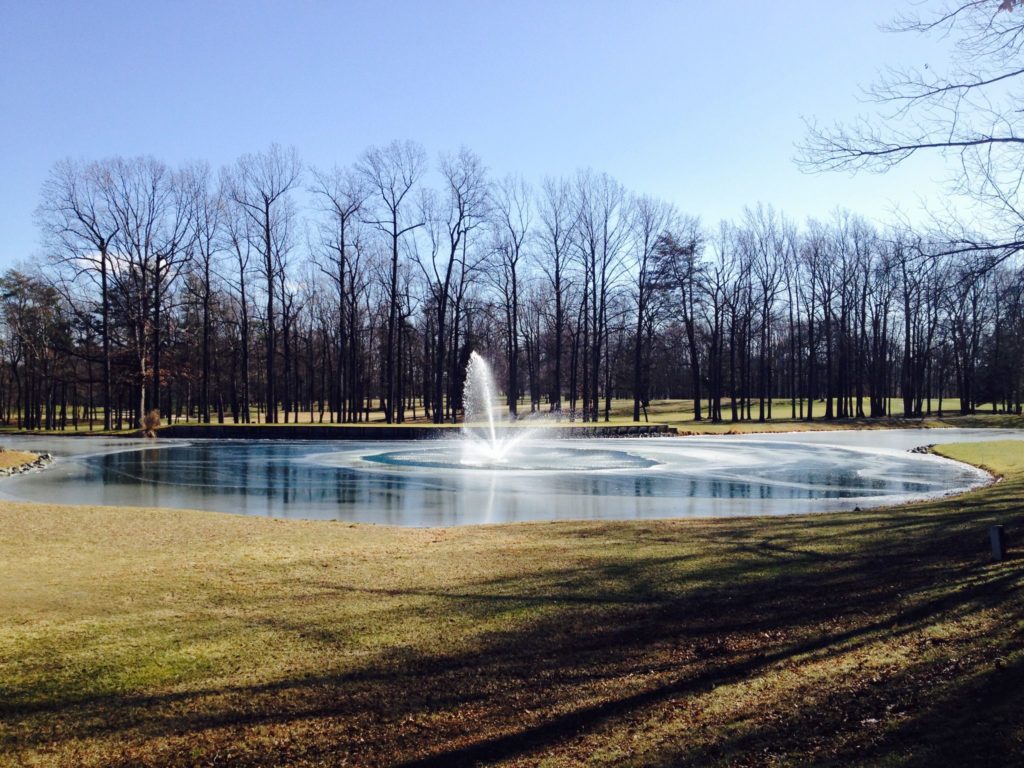
Use Aeration to Prevent Winter Fish Kills
Winter fish kills are a serious threat to your fish population if you live in the north. If large amounts of snow and ice form on your pond or lake, it can block out sunlight from penetrating into the water. Without sunlight, plants die, thus ceasing to give off oxygen they would produce during photosynthesis. The dead plant material also provides added nourishment for bacteria which also use oxygen. As the winter progresses, the available oxygen in the pond can be used up to a point where fish can suffer.
In the winter, the metabolism of fish will slow down. They move less, eat less, grow less, and use less oxygen. The same goes for bacteria in the pond, the oxygen consumption is lower. However, oxygen levels can drop low enough to cause major problems in a pond if the winter is severe enough. In many cases, the larger trophy fish of a given species will consume more oxygen. Therefore, during low oxygen times, your biggest fish can die.
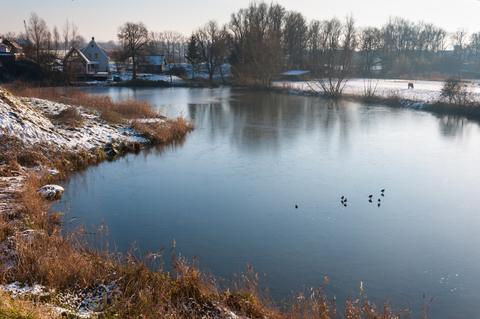
Increase Dissolved Oxygen Levels
Luckily, winterkill can be prevented. Cold water has the ability to hold more dissolved oxygen than warm water; it just needs to be exposed to the air so oxygen from the air can diffuse into the water.
Using a de-icer, water circulator, or diffused air system, you can keep the water open to encourage oxygen transfer and help your fish survive. A large open water area is not needed to prevent winterkill either. Only about 1-2% of the total surface area of the pond or lake needs to be open to prevent winterkill. In larger ponds or lakes, it is recommended to have several smaller open water areas, rather than one large area. Fish will migrate to the areas of higher oxygen during low-level times. Remember to check with local regulatory agencies about requirements of marking off open water areas along public waterways and always be extremely careful around open water in the winter.
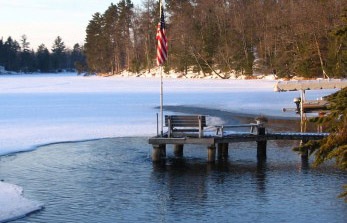
Keep Ice From Forming Along the Shore
Some best practice habits are to keep and maintain your open water area touching shore. This is a safety issue for pets and wildlife. If a dog or a deer falls into the open water area in the middle of the pond or lake, they have no way of getting out. However, if your open water area touches shore, they can swim to safety.
When using a diffused air system in your pond, it is often best to cut back on the air flow during the winter. If you use 3 diffusers for pond aeration in the summer, you may only need 1 to run during the winter for de-icing. The danger is moving too much water and “super-cooling” it to levels that could be dangerous to fish and/or make your ice thicker, eventually closing off the open water. Pulling a diffuser head to shallower water near shore is another option that also helps solve the animal safety issue.
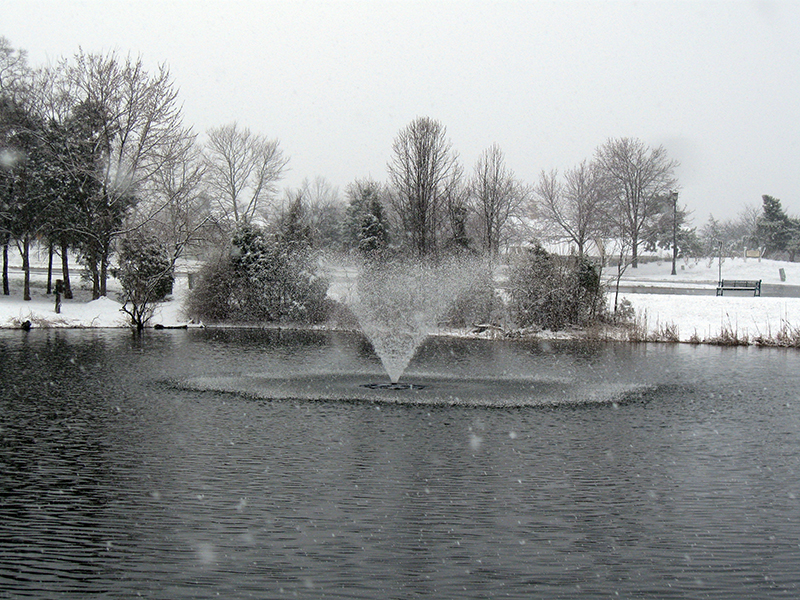
Keep Your Fish Healthy for Spring
By maintaining open water, you are helping to ensure your fish can thrive, even during the cold weather. They will have more available oxygen, which can lead to less stress and a better ability to fight disease. They will more actively feed and hit the ground running when the warmer spring water arrives.
Kasco Marine is a world-leading manufacturer of decorative and aerating fountains, surface aerators, diffused aerators, municipal products, circulators, de-icers, beneficial bacteria and pond and lake dye. Kasco offers these products to endless aquatic industries such as residential ponds and lakes, water treatment plants, retention ponds, docks, marinas, fish farms, and many more. View the original article.
The Benefits of Aeration
SOLitude Lake Management is a nationwide environmental firm committed to providing sustainable solutions that improve water quality, enhance beauty, preserve natural resources and reduce our environmental footprint. SOLitude’s team of aquatic resource management professionals specializes in the development and execution of customized lake, pond, wetland and fisheries management programs that include water quality testing and restoration, nutrient remediation, algae and aquatic weed control, installation and maintenance of fountains and aeration systems, bathymetry, shoreline erosion restoration, mechanical harvesting and hydro-raking, lake vegetation studies, biological assessments, habitat evaluations, and invasive species management. Services and educational resources are available to clients nationwide, including homeowners associations, multi-family and apartment communities, golf courses, commercial developments, ranches, private landowners, reservoirs, recreational and public lakes, municipalities, drinking water authorities, parks, and state and federal agencies. SOLitude Lake Management is a proud member of the Rentokil Steritech family of companies in North America.

